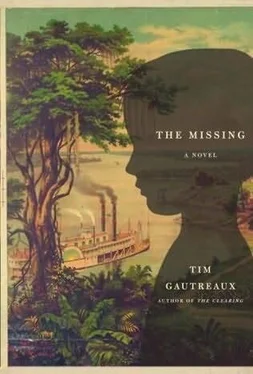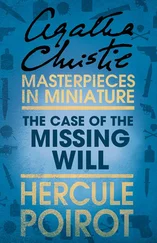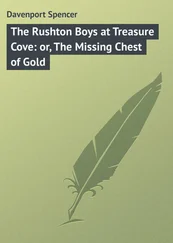ACY WHITE owned the only bank in the riverside town of Graysoner, Kentucky. He was a thin, sallow man, a Presbyterian-for-show, the grandson of a plantation owner who had owned many slaves in Mississippi. He held risky mortgages on dozens of little farms and owned personal loans made to hundreds of the county’s lesser inhabitants, in this respect continuing his grand-father’s slaver persona. Though he loaned money to most businesses in the area, nobody knew him well. He was not a gregarious and sweating banker, the usual tobacco-soaked, seersucker-wearing steak eater one finds in small Southern towns. He was neither a skinflint nor an easy touch, though now and then a wiry meanness flashed in his eyes. Acy believed in his inalienable right to whatever it was he wanted. He was remarkable for only one thing, his devotion to his wife, Willa, a blank slate of a woman he’d created out of his imagination.
Willa Stanton White, forty-year-old daughter of a wealthy lumber family from Gipson County, spent much of her time reading and rereading a leatherbound and gilt collection of Sir Walter Scott novels her husband had bought her and practicing Franz von Suppé transcriptions on the piano. Willa was an only child who had been spoiled beyond all measure and who’d allowed herself to be chosen by a man bent on honoring that tradition. For a small-town woman she owned brave sexual appetites and was an encouraging partner for Acy, though at times he seemed too tired to meet her demands. She had few close friends in town, though she knew many citizens at a hand-waving distance. Favoring expensive clothes designed to seem modest, she was not a stupid woman, but isolated and logic-deprived, raised on illusions and no work whatsoever.
At noon Acy left the bank in his new Oldsmobile, jittering over the redbrick street up the hill to his house, a three-story Greek revival with a windowed cupola on top from which one could just barely see the river two miles away. He went in and washed his hands in the downstairs bathroom under the stairs and sat in the dining room to wait for his lunch. Vessy, a thin serving girl from out of the eastern Kentucky mountains, hipped open the swinging kitchen door and in one motion set down a plate of beef stew and noodles and a glass of iced tea.
“Are they home?” He raised his chin to her.
She brushed her straight, near-colorless hair out of her gray eyes. “They’ll get down directly.”
“I thought they might have gone out in the other car.”
“Naw. The missus stickin’ close to the house.” Vessy pulled the silver condiment rack closer to Acy and left the room.
He’d finished half his meal when his wife and the little girl came in. Willa had her hand on the child’s back, guiding her to a chair next to Acy.
The child’s hair was an odd two-inch length all over, but her face was composed and engaged. “Hi,” she said.
Acy looked down at her. “Hi what?”
She shrugged. “Hi hi?”
“Madeline, you can call me Daddy now.”
“This lady said my daddy’s in heaven.”
He gave his wife an uneasy glance. “Yes, and I’ve replaced him. I’m your new daddy. And you shouldn’t call Willa ‘this lady.’ You can call her Mother.”
The girl looked away and bit her top lip.
Willa sat down. “Can you call me Mother?” She made a face full of mock deference that the child saw through at once, narrowing her eyes and remaining silent. “Well, it’ll come in time.” She flipped a starched napkin across her lap.
The kitchen door flew open and Vessy swung into the room carrying two plates of food. She didn’t look at the child, even as her arm passed around the little head.
“Madeline, can you remember this gal’s name?” Acy asked.
The child picked up her fork and then looked at Vessy’s face, smiling slightly. “Miss Vessy,” she said.
Acy wiped his mouth and took a swallow of tea. “Just Vessy is sufficient,” he said.
“What’s ‘sufficient’?” The girl picked up a noodle with her fingers and dangled it like a fishing worm.
“It means good enough,” Acy told her. “You don’t put ‘Miss’ in front of a hillbilly girl’s name.”
The child watched as Vessy refilled the man’s glass of tea and silently left the room, her face artfully turned away from them.
***
AFTER LUNCH the girl was left in the upstairs nursery with the maid, and Willa came down to share an after-dinner drink with her husband. From a decanter kept out of sight in a side table, she poured herself three fingers of bourbon in two fingers of water.
Acy lit a cigar and leaned back into a velvet chair. “What did you tell Vessy?”
“The same.”
“What, exactly? I’ve got to keep tabs on all this explaining.”
Willa took a long sip and wiped her lips with a lace handkerchief. “That Madeline came from an orphanage in Cincinnati. Her head was shaved for sanitary reasons by the orphanage, and her parents were killed in a railroad accident of some sort, just recently.”
He puffed steadily, slowly exhausting the smoke. “Good,” he said. “Are you still happy?”
Willa’s face brightened. “Yes. She’s everything I could have wished for. Smart as a whip and pretty as can be.”
He looked out of the window down the hill. They had tried to have a baby for ten years, but something was wrong, and their physical enjoyment only mocked them. As more time passed, Willa’s longing for a child was something she couldn’t put out of her mind, and the barren years had nearly driven her crazy. They’d visited orphanages in several states, but even when they would find a bright-cheeked child, clever and healthy, Willa always saw something in the hopeful face that made it impossible to claim.
She poured herself another splash and took it down like a soft drink. “What are you thinking?”
“I don’t know. I’m glad we found Madeline. Glad she’s not an orphan.”
“Oh.” She remembered the trips, the smells of want, the expressions on small faces taught by being passed over for the smarter child, the blue-eyed child. These visits drove home that all orphans were unlucky, and she realized she wanted something else-a child fortunate enough to be currently loved. Perhaps she felt herself incapable of raising a child to whom she could give love. She didn’t really understand the feeling and was mystified by her husband’s powerful devotion.
Across town the sawmill whistle blew the get-ready signal to bring the workers off their lunch break, and Acy stood up, just a little dizzy from his toddy, and went to retrieve his straw hat from the hook. He moved to where his wife was sitting on an embroidered dining-room chair and gave her a kiss on the softest part of her cheek, next to the mouth, where a drop of bourbon burned his lips.
THE NEW ORLEANS papers advertised that the Ambassador would operate one dance trip at eight p.m. as a break-in for her new season. Sam boarded the boat that morning and went up to his cabin on the Texas deck, where his third mate’s uniform was laid out on the bunk, a blue jacket with a gold stripe on the sleeve and a billed officer’s cap, on its front a gold wreath encircling the name of the boat. He put it on and felt silly at first, but stepping out on deck and climbing upstairs to the Texas roof, he looked the glossy boat over fore and aft, and the cloth began to claim him. The outfit made him part of another trade as surely as did a railroader’s overalls or his fine floorwalker’s suits. Captain Stewart was standing next to the steps leading up to the pilothouse, surrounded by men also in uniform. He spoke curtly to one young man, who turned away and ran to a stairway, his shoes clattering down toward the water. To the next he said, “Well, tell him we want squirrel-nut coal. With the current so stiff we can’t use that damned Birmingham slag he’s so hot to sell us.” Another man peeled out of the group, and the captain turned to the third. “If the concession man doesn’t like our Negro band, tell him to put on blinders. They’ll save us twenty dollars a day in wages, and the dancers like their music better anyway.” To the next he said, “Look at the sky, man. It’s going to be hot, so run all the ceiling fans and put more steam to our generator engine. It don’t take a genius to figger that out.”
Читать дальше












